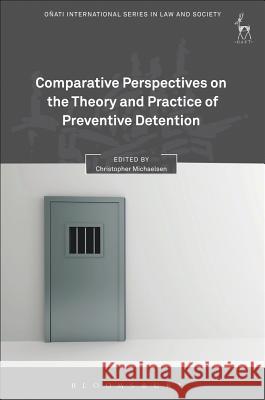Comparative Perspectives on the Theory and Practice of Preventive Detention » książka
Comparative Perspectives on the Theory and Practice of Preventive Detention
ISBN-13: 9781849467421 / Angielski
Preventive coercive measures are an increasingly common and controversial feature of the legal landscape in many countries. Examples include the preventive detention of 'dangerous' individuals after the expiration of their sentences, the involuntary commitment of 'dangerous' individuals to mental institutions purely to protect the public and the preventive detention of suspected terrorists not charged with any crimes. The practice raises a range of important and inter-related legal, criminological, moral, sociological and forensic-psychiatric questions. For instance, it is generally based on the probability, not the certainty, of future harmful conduct by individuals, making it likely that individuals who are not 'dangerous' will be mistakenly subjected to preventive detention and raising the question of how to determine whether individuals are, in fact, 'dangerous'. This book addresses the political and legal theory on criminal justice and preventive detention. It contains case studies of more than 20 jurisdictions in Europe, North America, Latin America and Australia/New Zealand as well as international human rights law perspectives. It is the first collection of essays addressing this complex issue from a truly comparative perspective and brings together internationally renowned scholars from different disciplinary backgrounds to explore a topic which has generally been under-researched.











